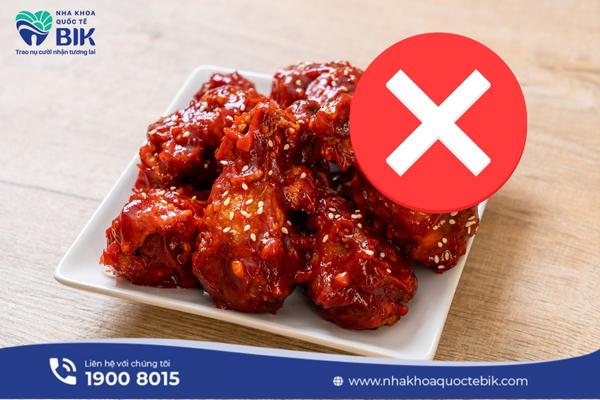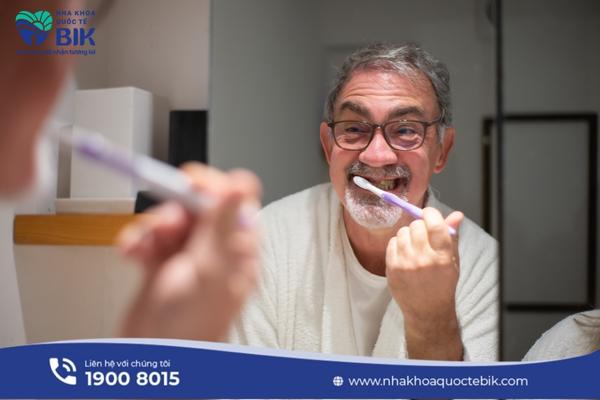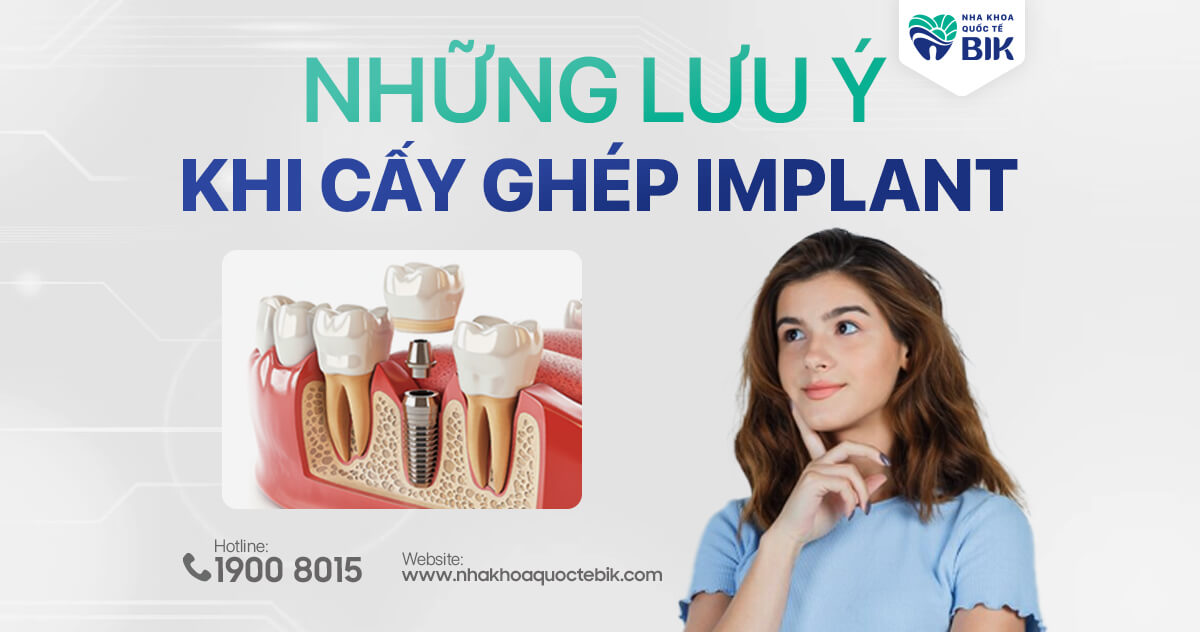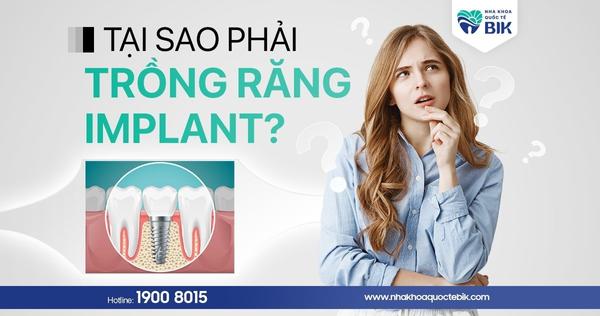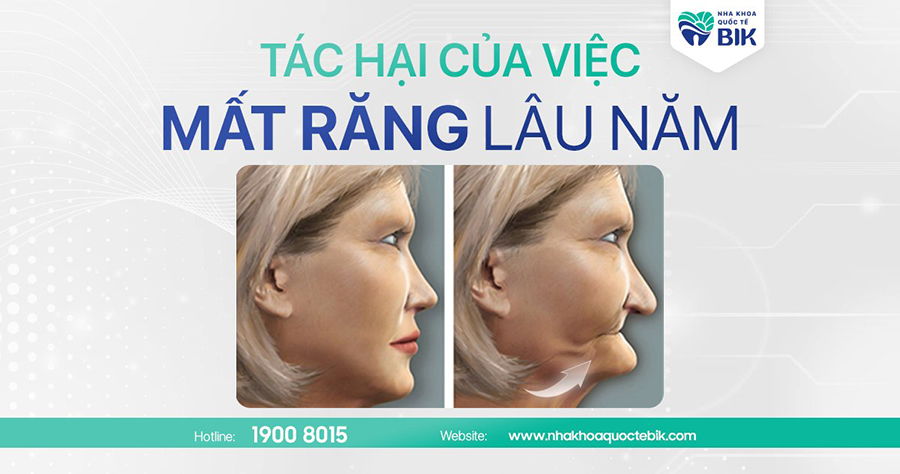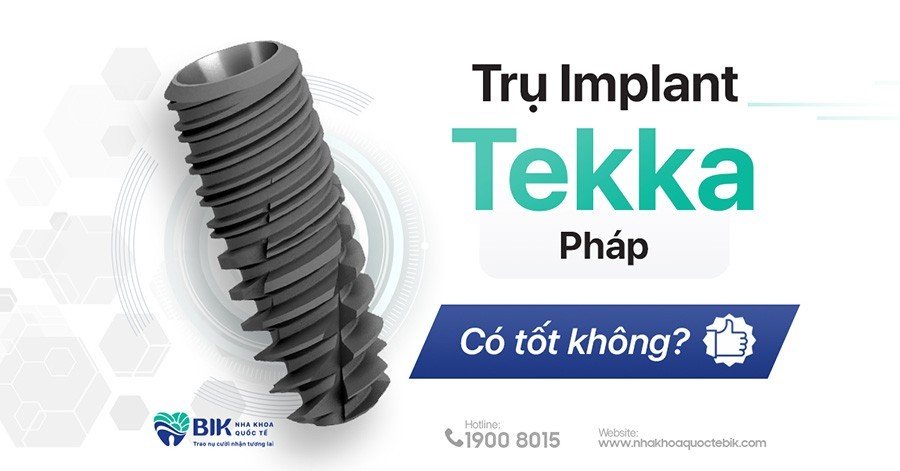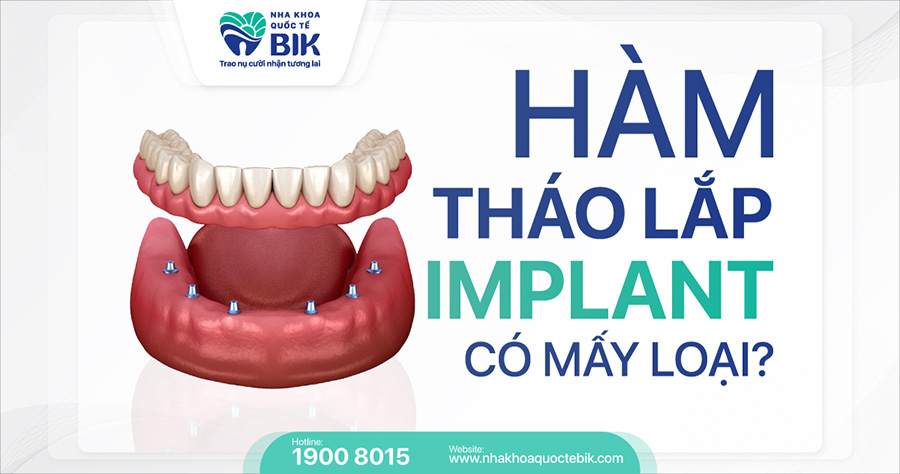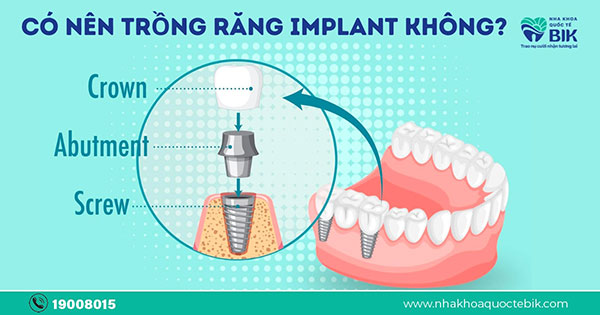The issue of eating is one of the top concerns of many people after dental implants. So what should you eat and avoid after dental implants to ensure your health and help the wound heal quickly? Let’s find out with BIK International Dentistry!
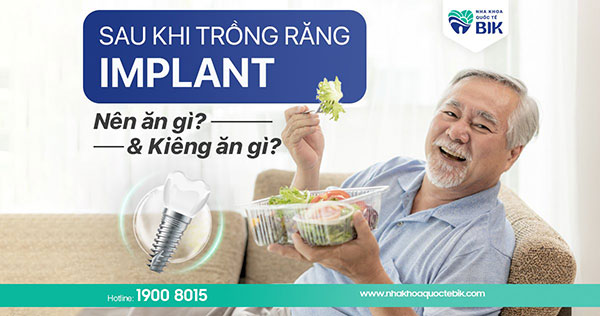
1. Can you eat normally after dental implants?
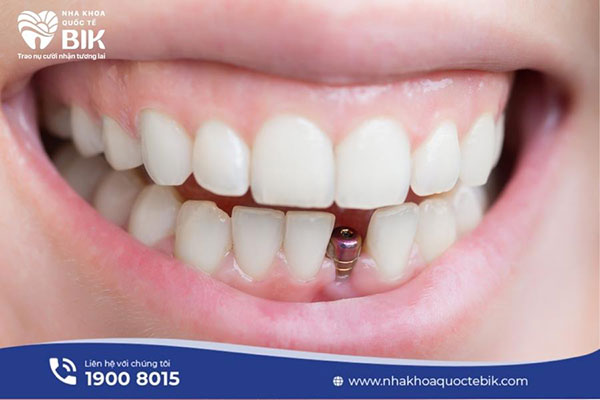
1.1 Can you eat normally after implant surgery?
Implant dentistry is the most modern method for cases of missing teeth, loss of 1 tooth, many teeth or the entire jaw due to many causes. Depending on the number of missing teeth, the doctor will place the implant. After the implant has integrated into the jawbone, the porcelain crown will be attached on top through the Abutment joint.
Normally, restorative methods mainly restore the function and body of the tooth but cannot completely restore the tooth root, implant dentistry brings many outstanding advantages with a complete structure like a real tooth. However, when affecting the teeth and mouth, eating and drinking will initially require more attention. After that, you can eat and drink normally like real teeth
1.2 How long does it take to eat after implant dentistry?
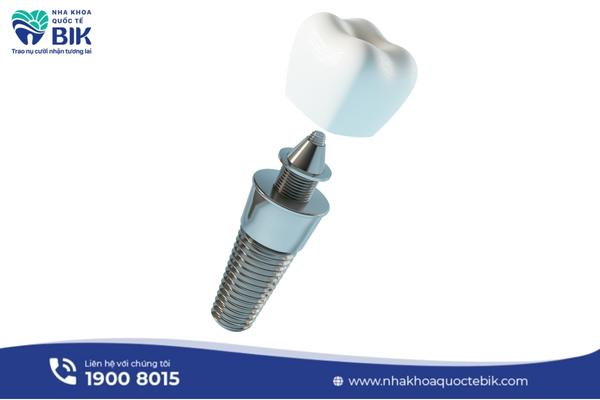
The implant is made of benign Titanium material, when the implant is placed in the jawbone, it will easily adapt to the body without causing any reaction or irritation to the teeth and mouth, so you can rest assured that you can still eat and drink normally. Before implanting teeth, doctors often advise patients to eat a full meal first to ensure their health and not to be hungry immediately after surgery. A few hours later (about 3 – 5 hours), you can eat and drink again with cold, soft foods to avoid too much chewing force affecting the wound. After about 7 – 10 days of implantation, patients can eat and drink normally.
2. What should you eat after implanting teeth?
Patients with implant surgery need to pay attention to their diet in the early days after the surgery to help the wound heal quickly and avoid infection.
2.1 Foods to eat after dental implant surgery
After the tooth is newly implanted, the implant has not yet fully integrated and stabilized with the body, so at this time the patient needs to eat soft, liquid foods. At the same time, do not chew too hard and quickly, but chew slowly and gently. In addition, it is also necessary to supplement and ensure a nutritious diet such as:
a. Eggs, milk, fish

Foods such as eggs, milk, fish, etc. are rich in vitamin D – a vitamin necessary for calcium metabolism and maintaining bone structure. Adding these foods to the diet will increase the ability to integrate the jawbone and implant. However, providing too much vitamin D is not good. Accordingly, excess vitamin D can worsen some common diseases in middle-aged people such as atherosclerosis, kidney, hyperthyroidism, etc. To ensure safe vitamin D supplementation, patients should eat a reasonable diet and balance nutrients.
b. Fruits
Fruits, especially guava, grapefruit, oranges, strawberries, etc., contain a lot of vitamin C. In addition to increasing the ability to heal wounds and the body’s resistance, fruits also help the body better absorb vitamins and other nutrients that are good for the body. Moreover, eating a lot of fruits containing vitamin C also helps shorten the time of dental implant treatment for patients with osteoporosis.
c. Vegetables and tubers
There are many nutrients in vegetables and tubers used daily such as vitamins D, K, E, … which are very good for wound healing. Patients can flexibly process vegetables and tubers into juices, smoothies or cook them into dishes such as soup for easy eating.
2.2 Diet after dental implant surgery

a. On the first day after dental implant surgery
Within about 24 hours after dental implant surgery, you may feel a little pain, but this is completely normal and will go away in a few days, so there is no need to worry too much.
The preferred foods during this period are foods that have been processed into liquids such as: Porridge, soup, oatmeal… Absolutely do not skip meals and another important thing is to drink enough water, you can drink more avocado smoothies, orange juice or apple juice…
b. On the 2nd – 3rd day after implantation
2 – 3 days after implantation, the implant has gradually stabilized, but you should still continue to maintain the same diet as the first day. You can eat some more vegetables or juice to supplement vitamins for the body. Eggs, yogurt, fresh milk and fruits such as avocado, orange, banana,… should also be used during these days.
Absolutely limit hard, chewy foods or foods that are too hot or cold. Because they can affect the wound and the implant.
c. In the next 2 weeks after implant placement

This period of time has entered the healing stage, the implant is also more stable. You will feel comfortable and no longer have pain. At this time, you can eat and drink as usual but still have to ensure nutrients and avoid foods that can damage the implant. Absolutely do not use your tongue or hands to touch the implant site to minimize the risk of infection.
The implant procedure includes 2 main stages: surgery to place the implant into the jawbone and the restoration stage of attaching the porcelain crown on the implant. In phase 1, when the surgery is just finished, the soft tissue around the tooth is still damaged, so you need to pay attention to eating and drinking according to the instructions above. In phase 2, when the tooth has been attached with porcelain, you can eat and drink comfortably like real teeth.
3. What should you avoid after dental implant surgery?
1 to 2 weeks after dental implantation is an important time to determine the healing process, because at this time the soft tissues and the implant mouth are very sensitive, so it is necessary to pay attention to abstaining from foods as well as eliminating bad habits that affect the wound healing process.
3.1 Do not drink alcohol, beer and carbonated drinks
Many people have the habit of drinking carbonated soft drinks or alcohol, beer… But try to abstain for at least 4 weeks after implant surgery to speed up the recovery process.
3.2 Limit foods that are too hot or too cold
Food temperature can affect the implant post, and can also cause prolonged bleeding.
3.3 Avoid foods that are too sour and spicy
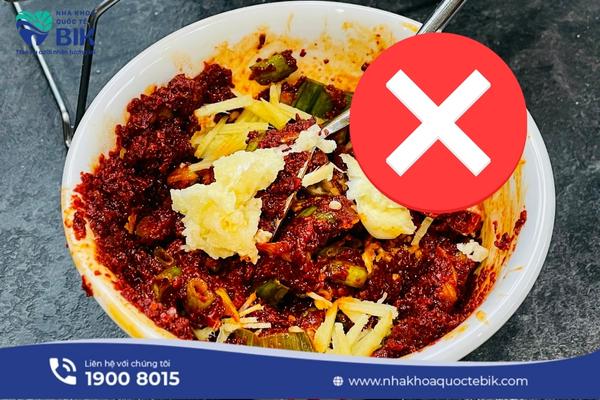
For people with overly sensitive gums, eating sour and spicy foods can irritate the gums.
3.4 Avoid foods that are too hard or chewy
You should not eat foods that require you to chew a lot to avoid strong impacts on the wound, causing pain and hindering the tooth’s recovery process. Avoid foods that are too hard or chewy because the teeth are not yet fully developed. If the jaw muscles chew too much, it will affect the recovery process and the adhesion of the teeth.
3.5 At the same time, note some other issues such as:
Absolutely do not smoke for 2 – 4 weeks after implant placement.
Do not use a straw because your sucking action can affect the implant area and cause bleeding.
Avoid strenuous exercise or direct impact to the implant area.
4. How to take care of your teeth after implant placement?
In addition to diet, you also need to follow other important things such as proper oral care and hygiene to ensure the healing process goes smoothly as well as limit complications that may occur after implant placement.
In the first days after implant placement, patients should follow the doctor’s instructions to ensure the health and safety of the implant area:
– Bite gauze for 30 – 40 minutes to stop bleeding, do not spit hard or too many times to avoid breaking the blood clot.
– Apply cold compresses to the outside of the cheek or lip in the implant area to reduce pain, and apply warm compresses the next day to reduce swelling more quickly.

– Do not use your hands or any object to check the wound to avoid infection.
– Take enough medicine and use mouthwash as prescribed by your doctor to help relieve pain and heal quickly. If you detect abnormalities such as prolonged bleeding, swelling and inflammation causing fever, you should immediately notify your doctor for treatment.
– Brush your teeth gently with a soft-bristled toothbrush, avoiding brushing hard on the wound area. Do not rinse your mouth with salt water for the first 2-3 days. In addition, you should use dental floss to remove leftover food between your teeth better.
Hopefully, through the above article, you have answered the question “What to eat and what to avoid after dental implant surgery”. The healing process after dental implant surgery will be faster and smoother if the patient has a reasonable diet so as not to affect the wound. In addition, it is necessary to follow the instructions on how to care for and clean teeth, rest well after surgery, then the dental implant will integrate more easily into the jaw bone, bringing a new, stronger and more aesthetic set of teeth/jaw.


